Trump's revised travel ban will target same countries: Report
US President Donald Trump's revised immigration ban includes the same seven countries targeted in the original executive order, according to a new report.
The initial order barred refugees and people from seven predominately Muslim countries -- Iran, Iraq, Libya, Somalia, Sudan, Syria and Yemen -- from entering the United States.
The new order will also exempt people who already have a visa to travel to the United States, even if they haven't used it yet, or who hold green cards, and dual citizens of the US and any of those countries are also exempt, The Associated Press reported on Monday, quoting a senior administration official.
In addition, the new order, expected to be released this week, will no longer tell authorities to specifically single out and reject Syrian refugees when processing new visa applications, the official said, speaking on condition of anonymity to discuss the order before it is made public.
The Wall Street Journal also reported that the revised order includes the seven countries targeted in the initial order but excludes those with green cards.
US Homeland Security Secretary John Kelly said on Saturday the new executive order will be “tighter.”

“The president is contemplating issuing a tighter, more streamlined version of the first [executive order],” Kelly said at the Munich Security Conference.
“I will have, this time, the opportunity … to work the roll-out plan in particular to make sure that there’s no one in a sense caught in the system moving from overseas to our airports, which happened in the first release," he said.
Trump’s previous order to impose a 90-day entry ban on citizens from Iran, Iraq, Syria, Yemen, Sudan, Libya and Somalia, block refugees from Syria indefinitely, and suspend all refugee admissions for 120 days, was blocked not long after being released by a federal judge.

Tens of thousands of protesters have rallied in US cities and several world capitals over Trump’s immigration policy.
Trump’s now suspended order has sparked a global backlash, including from American allies that view the restrictions as divisive and discriminatory. Governments from London and Berlin to Jakarta spoke out against the travel order.
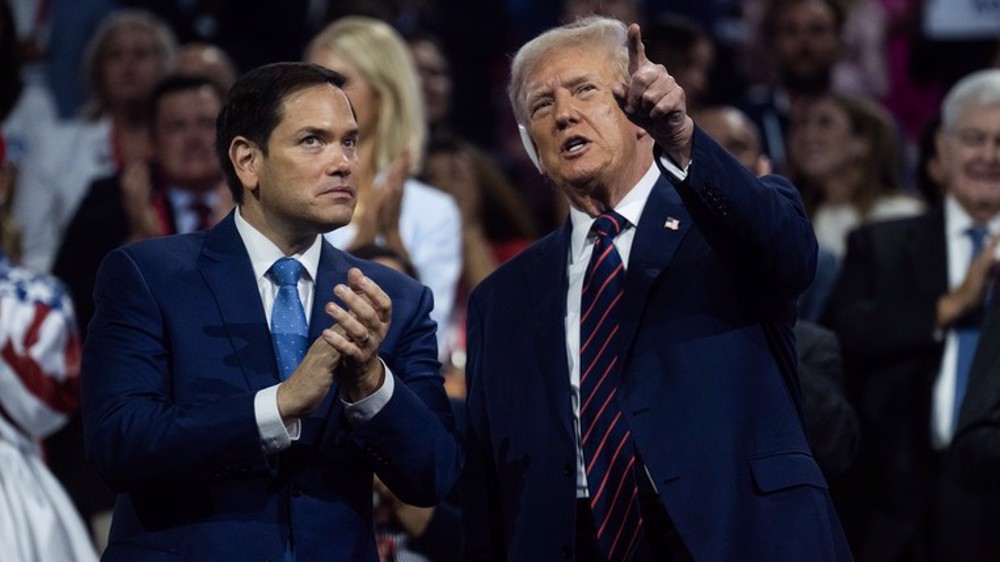
Trump seeks sweeping cuts to State Department: Report

Trump rescinds arms sales regulation in favor of Israel, sources say
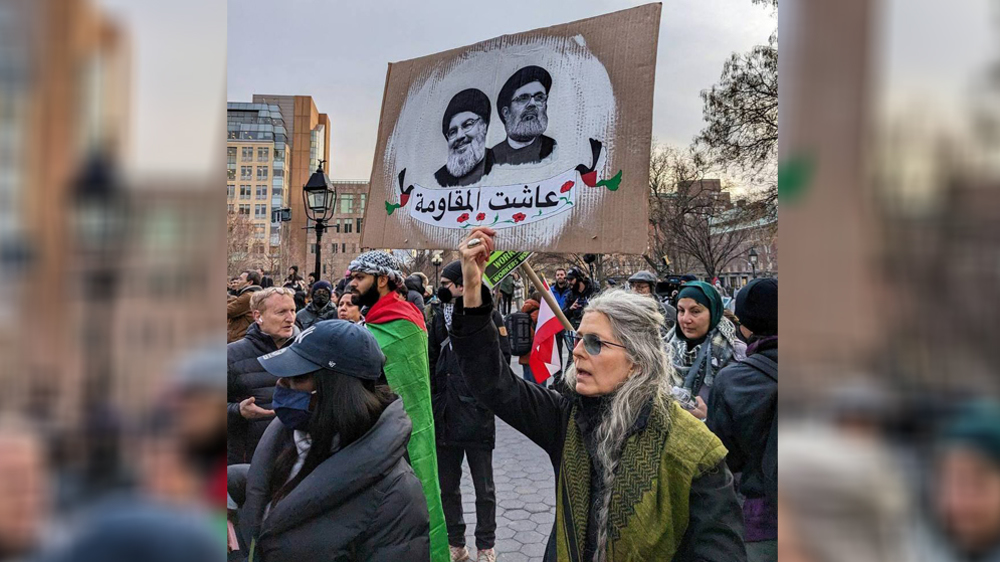
NYC vigil for Hezbollah martyrs: Attendees say anti-imperialism struggle transcends borders
Houthi: Yemen ready to attack Israel if Gaza ceasefire breaks down
VIDEO | Lost classrooms, lost childhoods: Jenin’s children struggle for education
VIDEO | Palestinians ramain steadfast despite Israel’s onslaught
VIDEO | Press TV's news headlines
Iran ready to strengthen ties with UAE based on ‘mutual interests’: Deputy FM
VIDEO | A slap in the face of imperialism
Iran remains steadfast in its ‘principled positions,’ says Foreign Ministry
VIDEO | Holding on to hope: Gazans welcome Ramadan despite hardship


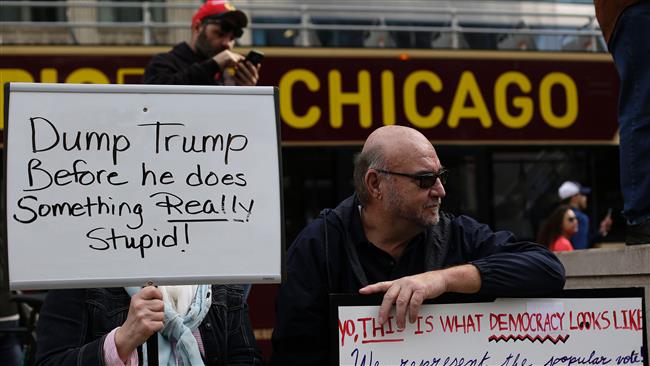



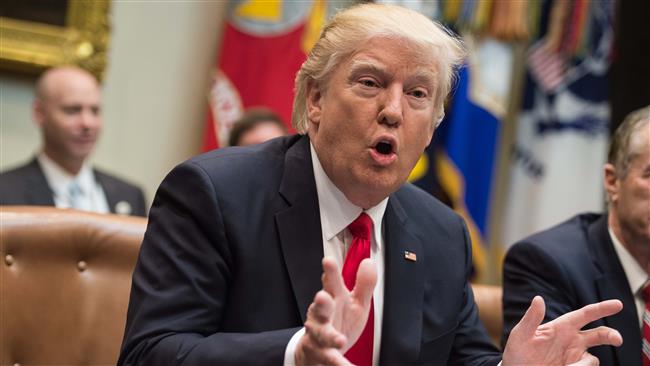
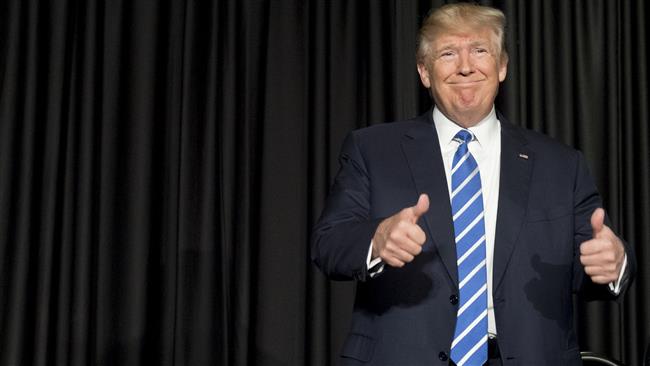
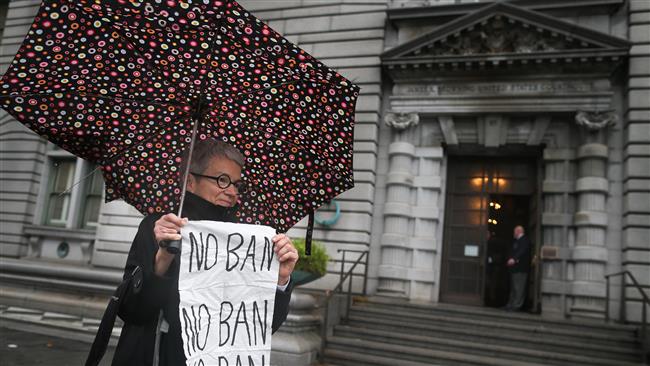
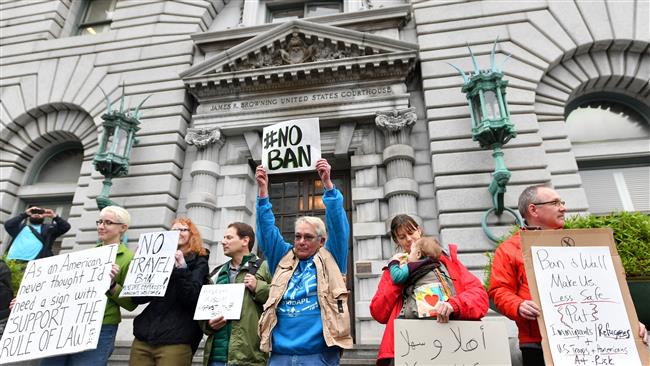
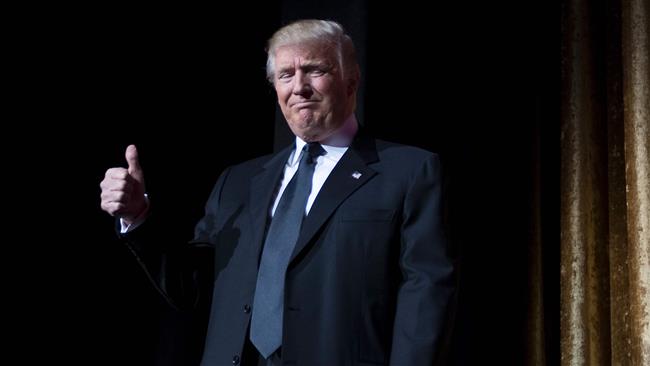
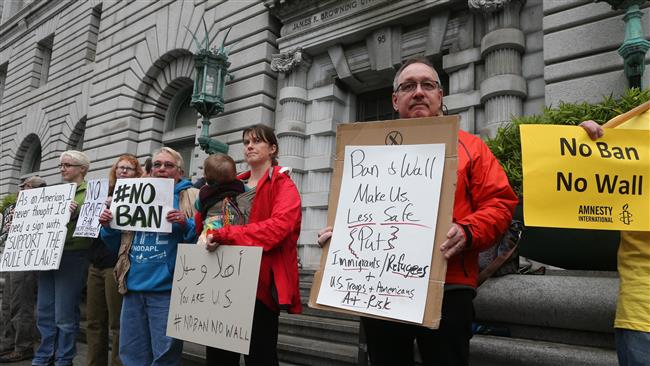
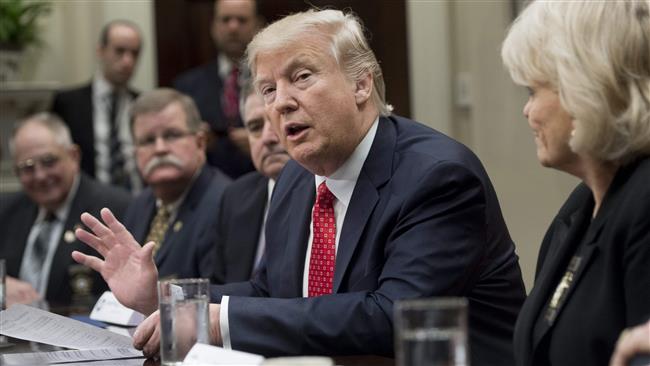
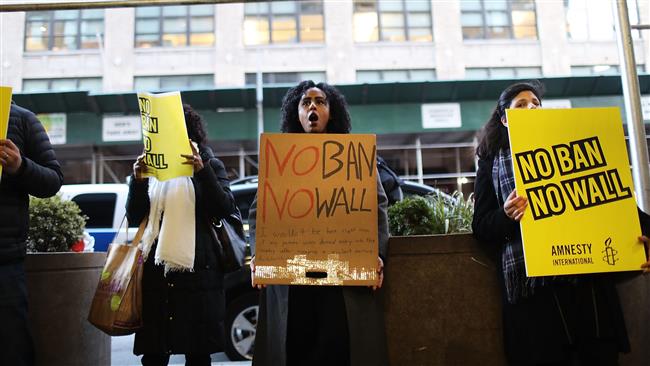

 This makes it easy to access the Press TV website
This makes it easy to access the Press TV website